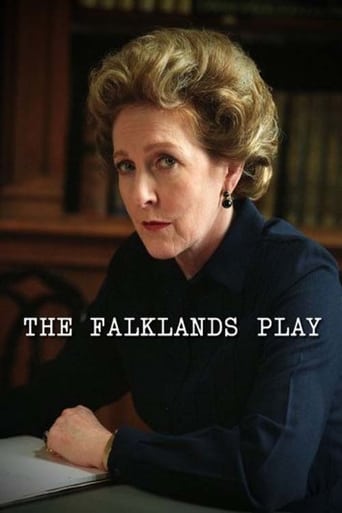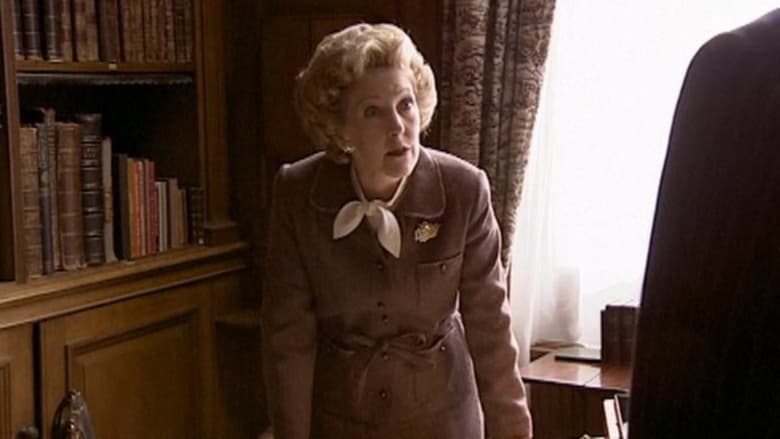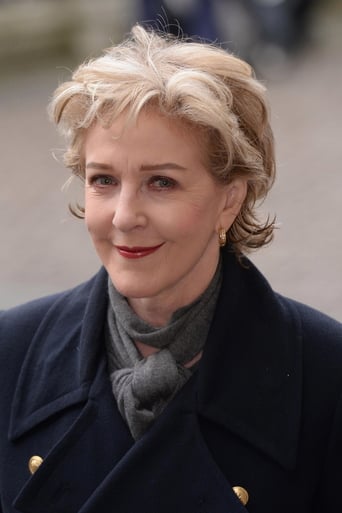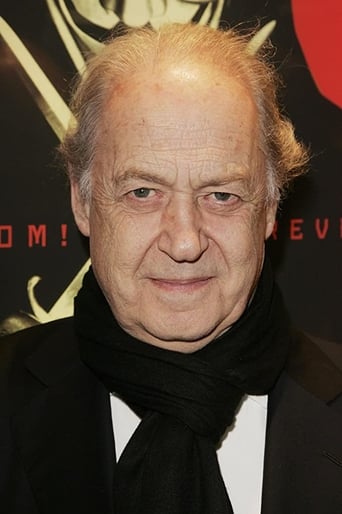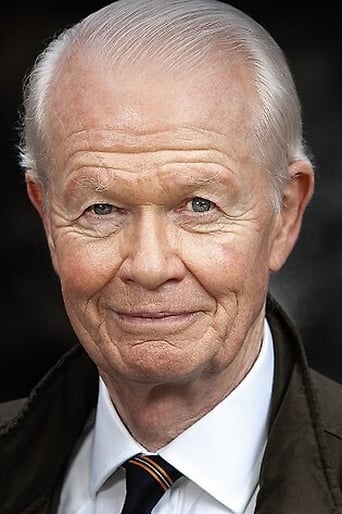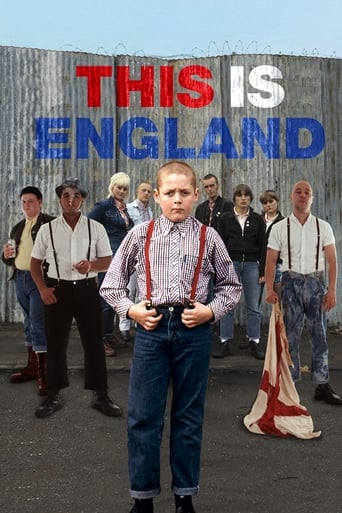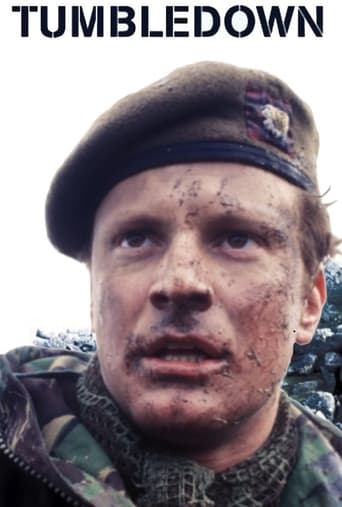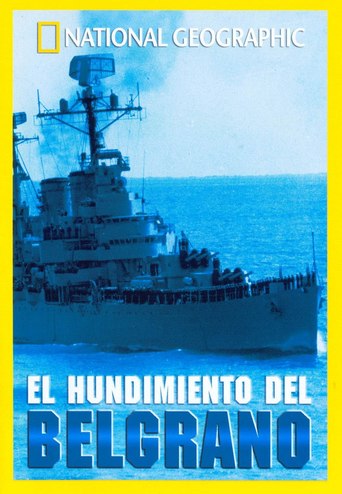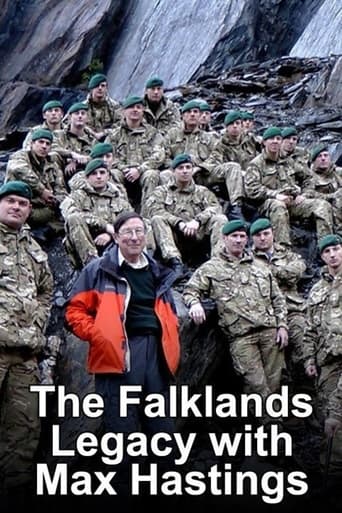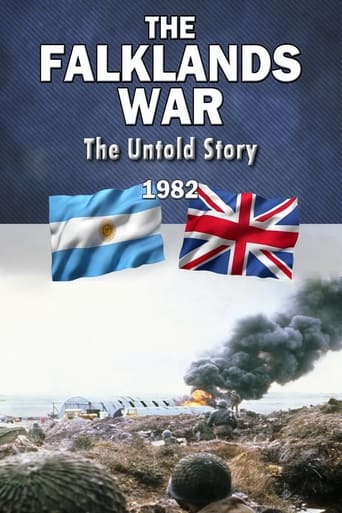The Falklands Play (2002)
The Falklands Play is a dramatic account of the political events leading up to, and including, the 1982 Falklands War. The play was written by Ian Curteis, an experienced writer who had started his television career in drama, but had increasingly come to specialise in dramatic reconstructions of history. It was originally commissioned by the BBC in 1983, for production and broadcast in 1986, but was subsequently shelved by Controller of BBC One Michael Grade due to its alleged pro-Margaret Thatcher stance and jingoistic tone. This prompted a press furore over media bias and censorship.The play was not staged until 2002, when it was broadcast in separate adaptations on BBC Television and Radio.
Watch Trailer
Cast


Similar titles
Reviews
People are voting emotionally.
Fun premise, good actors, bad writing. This film seemed to have potential at the beginning but it quickly devolves into a trite action film. Ultimately it's very boring.
Excellent and certainly provocative... If nothing else, the film is a real conversation starter.
The movie turns out to be a little better than the average. Starting from a romantic formula often seen in the cinema, it ends in the most predictable (and somewhat bland) way.
This is a deeply flawed portrayal of the Falklands crisis, though arguably it's no more flawed than portrayals which unthinkingly demonise the Thatcher government. Propaganda is still propaganda, regardless of which side it comes from.The Falklands Play makes many errors and omissions which undermines its relevance: It ignores the prevailing British domestic political situation. Thatcher was struggling in the polls, there was disquiet over the wisdom of choosing such a right-wing leader both within the Conservative party and in the country as a whole, and the economy showed no sign of sustained recovery from the problems of the late 1970s.Thatcher is rightly portrayed as someone who had delusions of Churchillian leadership, however, as the play portrays her as focused and eloquent in the way Churchill was, she was in reality as desperate to retain the idea of British international power and empire as Churchill was. And just as wrong. Such irrational motives will always be wrong.The idea that Thatcher would cite Argentina's human rights record as a reason to act aggressively is unlikely given the US support for Latin America's quasi-fascist dictators (Operation Condor and more). The international fight against Communism was far more important, especially in the US, than a petty squabble over some desolate rocks filled with little Englanders. Thatcher would know that Argentina's dictatorship was US-backed, just as was Chile's and a handful of others, and their unethical methods were tolerated in order to prevent the spread of Communism.The play shows Argentina to be exclusively aggressive, intransigent and scheming. Appeasers or doubters are portrayed as woolly-minded, weak or foolish (especially Francis Pym). Another reviewer suggested this was a 'love letter' to Thatcher, in that it portrayed her in almost exclusively positive light: deliberate, strong, decisive, thoughtful. All of these two dimensional portrayals serve only undermine the writer's intention (whatever that might be) and makes the whole easy to dismiss.There are comments here that suggest a black and white version of events suggesting Argentina, in order to quell internal disquiet about the ruling dictatorship, invaded Las Malvinas, a long-standing dispute with Britain, to unite their nation and distract from domestic problems. Whilst this is true, the play's wilful ignorance of Britain's readiness to pay only token and cursory attention to US diplomatic efforts gives an unbalanced picture.The Falklands conflict was, like most international disputes, very complicated, shrouded in doubt and manipulation. It was the product of both domestic realpolitik, international image, and personal ego. The Falklands Play prefers to give the impression that it was some brave, patriotic, moral battle of good (Britain) against evil (Argentina). Writers and film-makers have learned that you can't even portray the Second World War in such simplistic terms any more.Thatcher was a shrewd political operator who saw an opportunity to depict Britain as the injured party in a minor dispute. She and her government undoubtedly played their part in amplifying and escalating a situation which could have been resolved without the loss of life which the dispute ultimately cost, for domestic reasons. Anyone who can remember the tub-thumbing, jingoistic nonsense which accompanied much of the coverage of the conflict will know just how well it played for the struggling Thatcher government. Ultimately, both Thatcher and Galtieri used the islands as a pawn for domestic political reasons. In reality, it should never have been allowed to get to the stage of armed conflict, and Britain, as much as Argentina, must share the blame for it doing so.
In this day and age of cynicism it's refreshing for a film (tele-play?) to tell it how it was. At the end of the day a militaristic dictatorship invaded a peaceful little Island, watched over by a democratic nation. Sorry but those are the facts. This is how it's told. You then throw in a strong, charismatic leader and you've also got a damn good story. Patricia Hodge (I would never have cast her) was marvellous. Anyone wishing to see a balanced view of the conflict should watch this and An Ungentlemanly Act and this presentation.
I hear that this play was not originally broadcast by the BBC either as: it was politically sensitive, or; it was simply not up to scratch. I would say there was validity to both propositions.It is definitely politically sensitive material, and surely it was quite right that the original production was not broadcast in the run-up to what, if I remember correctly, was the 1987 General Election. The BBC had the utmost sense not to broadcast such an unbalanced, politically-slanted piece. One could understand such a play if it was written to sure up people's support for the State in a time of crisis, but inherently it was ready long after the Falklands conflict. One would expect a balanced, realistic perspective from such a play as this, but instead you get a whitewashing of then-Prime Minister Margaret Thatcher's character. In readings about her, from Hugo Young to Julian Critchley to any number of Cabinet colleagues, I can tell this is not the real Thatcher. True, the Falklands conflict may have shown her at her best, but this play is practically adulatory, portraying the "Great She Elephant" as a very balanced, pragmatic and acutely sensitive and emotional person. She was roundly not these things, and indeed, a cursory reading of the Falklands saga shows she was at odds with many of the people involved, not just the odd stray American who doesn't quite grasp the situation.One clearly gets the sense, with use of archive news reports and the general slanted tone, that the writer had no personal experience of what went on within the higher echelons of British Government at the time. That is not to say, of course, that someone like this shouldn't be allowed to write a play about the Falklands; just that they should have tried to craft a drama with far more adherence to what really happened. Thinking about it, this drama really is lacking in dramatics. Where is the real insight as to Thatcher's tensions with Messrs. Carrington and Pym? A capable, veteran cast of British stalwarts act it out reasonably, but it does no good really. Patricia Hodge does a good job at acting a Prime Minister who really is no Margaret Thatcher. She does not attempt to capture virtually any of the mannerisms or tones of Thatcher. An ill-advised performance, but surely the result of Curteis' slanted perspective. It really could be a Party Political Broadcast for the Right Hon. Member for Finchley and the Conservative Government of the time. The handling of the historical sequence of events is plodding and really quite banal. And what to say about certain political figures' portrayal? A Denis Healey who looks absolutely nothing like him, a Ronald Reagan who is sent up as a hapless, clueless charlatan. Well, maybe there's some validity to *that*...!So, certainly a mistaken choice for BBC4 to revive this project, a project that frankly had little merit; the original decision on it was quite justified on both counts.Rating:- **/*****
The Falklands Play has got to be one of the most controversial plays never produced of the 1980s.Originally written by Ian Curteis shortly after the war ended but the BBC declined to produce it, officially because it wasn't good enough, but widely believed to be because it was too pro-Conservative just before a General Election in the UK. Watching it now it's even harder to believe that it wasn't good enough to make years ago.Telling the story of the British politics immediately before and during the conflict Patricia Hodge is brilliant in her role as Mrs. Thatcher. So scarily like her that during the recreated news clips it's hard to remember which one is the actress. Although some of the other lead characters look and sound nothing like their alter-egos, they still manage to recreate the right atmosphere.Deliberately supposed to show the conflict from `our side' I'm not sure if the emotional side of Margaret Thatcher isn't over played slightly.

